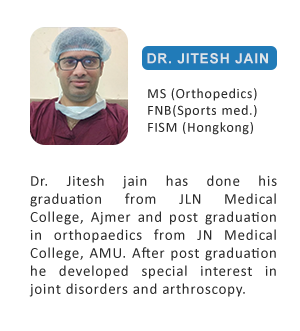Knee Replacement: Post Care
If you are considering or have recently undergone total knee replacement surgery, you may have many questions and concerns about your post-operative recovery period. As an orthopaedic specialist, I have prepared a list of frequently asked questions (FAQs) that my patients often ask me. In this article, I will provide detailed answers to these questions to help you navigate your post-total knee replacement journey with confidence.
This article aims to provide valuable insights and tips that will be helpful in your post-surgery phase. Additionally, I have also made a video that discusses these topics in more detail. Please check out the video to get more comprehensive information on knee replacement post-care.
In the following sections, I will cover the most common questions patients ask regarding knee replacement post-care, including pain management, dressing changes, sleeping tips, resuming daily activities, physiotherapy, and warning signs to watch out for. By understanding the answers to these frequently asked questions, you can be better prepared for your recovery after total knee replacement surgery.
How long should I take painkillers after knee replacement surgery?
One of the most common questions we receive from patients is how long they should take painkillers after surgery. The answer is that the duration of pain medication varies from patient to patient. Most of the patients need to take pain killers for 3-4 weeks post surgery.It is essential to follow your doctor’s instructions and not exceed the prescribed dosage.
Do I need to change my dressing after surgery, and how should I do it?
Patients are often nervous about performing dressing changes after knee replacement surgery. Usually dressing is changed 2 days after surgery . In majority of the cases you need not change this dressing till stitch removal. You can also take shower if the dressing is water proof otherwise avoid getting it wait !
What are the best sleeping tips after knee replacement surgery, and what type of mattress should I use?
Getting a good night’s rest is crucial for your recovery after knee replacement surgery. Patients may find it difficult to get comfortable while sleeping due to the pain and limited mobility. Some useful tips for comfortable sleep include elevating the leg, using pillows, and sleeping on the back. We also recommend a firm mattress to provide proper support to the operated knee. You can sleep in any position in which you feel comfortable. You can bend your knees or sleep on one side. Don’t use a pillow below the knee while sleeping, it may cause knee stiffness.
When can I resume my daily activities, such as driving, sports, and other physical activities?
Patients often want to know when they can resume their daily activities after knee replacement surgery. The answer varies from patient to patient and depends on several factors such as age, overall health, and the extent of the surgery. Single knee replacement patients recover faster than both knee replacement patients.
Normally after both knee replacements one patient gets enough movement to move around the house in 3-4 weeks. In around 4-6 weeks you can go up and down stairs comfortably, go to a park or temple near home. You can join your office ( light duties / desk job) or drive a car in 8-10 weeks. You should follow a guided rehabilitation exercise program for 6 months to get back to recreational sports again.
What is the role of physiotherapy after knee replacement surgery?
Physiotherapy is an essential part of your recovery after knee replacement surgery. It is designed to help you regain strength, mobility, and function. Your physiotherapist will create a personalized treatment plan that includes exercises and stretches to help you achieve your recovery goals. We recommend a 4-6 week physiotherapy/ guided exercises program for all our patients after knee replacement.
What warning signs should I look out for after knee replacement surgery?
It is crucial to recognize warning signs after knee replacement surgery that may indicate complications. Some warning signs include fever, increased pain or swelling, redness or warmth in the operated leg, or chest pain. Soakage of dressing may indicate infection and you should inform your doctor about it. Slight pain and swelling are considered normal after knee replacement in the initial few weeks. If you experience any of these warning signs, contact your healthcare provider immediately.
In conclusion, knee replacement post-care is a critical aspect of your recovery after surgery. It is essential to follow your doctor’s instructions carefully and to know what to expect during your recovery period. By understanding the frequently asked questions and tips provided in this article, we hope you will have a smoother recovery and a quicker return to your daily routine.
ABOUT THE AUTHOR

TESTIMONIAL

मेरा दाए पैर में चोट लगने के कारण टेढ़ा हो गया था जिसकी वजह से मुझे चलने में भी परेशानी हो रही थी. डॉ जितेश ने ऑपरेशन कर के इसे सीधा किया. में बिलकुल ठीक हूँ .

मेरी बेटी के घुटने में इन्फेक्शन होने के कारण वो दर्द की वजह से सो भी नहीं पाती थी. डॉ जितेश ने ऑपरेशन कर के इसे ठीक किया. बहुत धन्यवाद।

I remember that Dr. Jain came out from his clinic to see my mother because my mother was not able walk a single step. He did total knee replacement on both side and now my mother is walking without aid.
OPENING HOURS
| Monday – Friday | 17:00 – 20:00 |
| Sunday | OFF |
